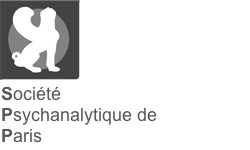|
Résumé :
|
The natural world has always been integral to our existence; currently, we are compelled to reckon with our assumptions about this connection with mounting urgency. Individual reactions to the environment are influenced not only by the sociocultural surround, but also by one’s internal world, particularly whether one’s internal objects are felt to have been irreparably damaged or are potentially salvageable. Excessive guilt about destructive impulses can limit one’s ability to recognize individual responsibility for the current situation without catastrophizing the weight of one’s ecological footprint. Delusional solutions may be adopted, valorizing extreme forms of engagement. The film First Reformed illustrates what appear to be divergent approaches to the planet: ruthless exploitation by an industrialist versus an impassioned objection to destruction of the environment for economic gain. In this narrative, both are underpinned by a paranoid-schizoid mindset. We investigate the dynamics of this psychic state, which results in a constricted perception and an absence of constructive agency with respect to the environmental crisis. We present an alternative conceptualization of the natural world’s place within a person’s psychic equilibrium. We emphasize that a more integrated relationship with the environment can facilitate concerned, preservative action on behalf of the natural world and ourselves.
|




